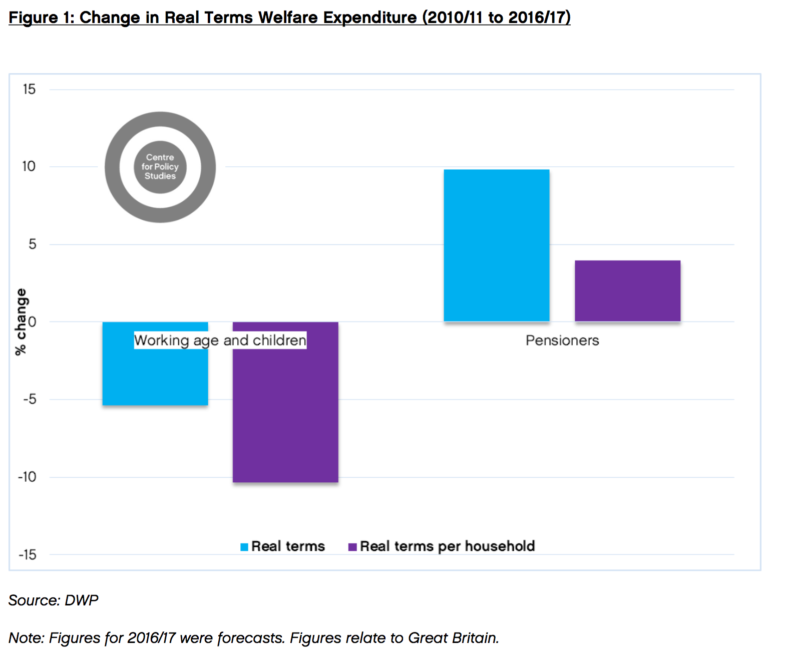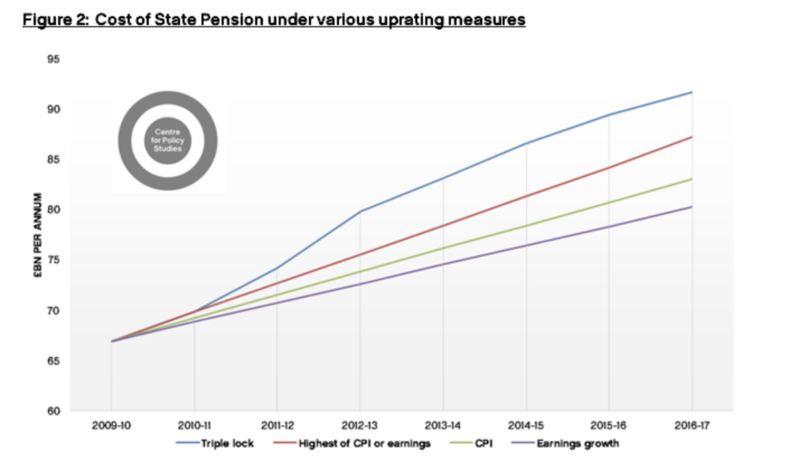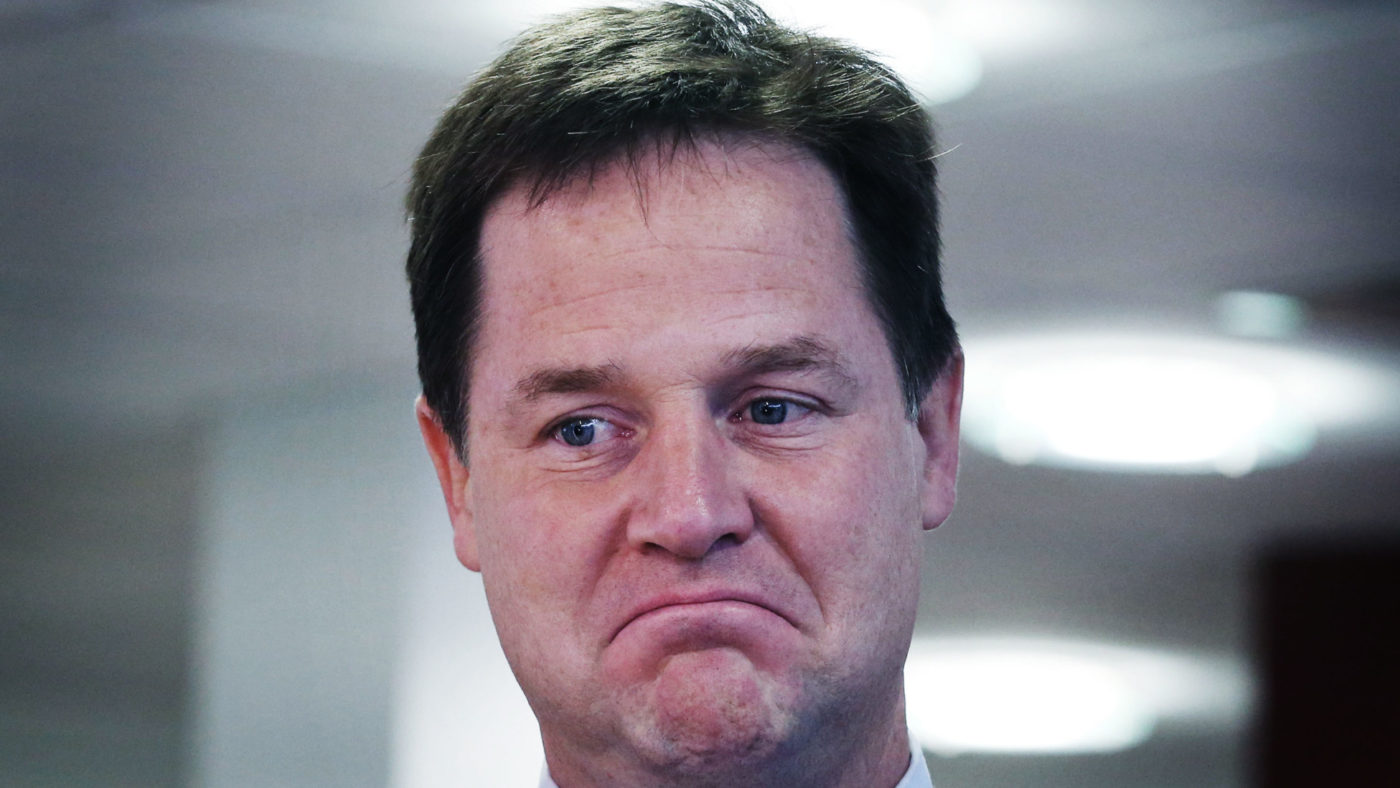The Conservatives’ woeful performance among the under 45s in this year’s election caused panic in Ministers. The rapid-response proposals then set out at Party conference in an attempt to woo the younger voters back included measures ranging from mere tinkering to the seriously ill-advised. The tweaks to tuition fees, for example, will make only marginal changes to the experience of students; an extension of the Help to Buy scheme, without an accompanying policy to drive up supply, is nothing more than a recipe for exacerbating the UK housing market problems.
A more fundamental and honest approach to addressing the problem of intergenerational unfairness would be to examine the way that welfare reform has been pursued since 2010. On a per household basis, real terms welfare expenditure has fallen by 10 per cent for those of working age and children. Much of this has been a necessary correction, of course. The UK’s welfare budget spiralled out of control under Labour’s time in government and the country had a huge budget deficit to grapple with in 2010.
Pensioners, however, haven’t only been protected from the savings: welfare expenditure per pensioner has increased up by 4 per cent since 2010. Added to growing intergenerational wealth inequality – which has been worsened by the QE programme – pensioners are now getting an extraordinarily good deal. The average pensioner now has a higher median income than the average working age person, and current policies are set to make this differential even higher.

The triple lock on pensions is the primary culprit of this growing intergenerational disparity. It was one of Nick Clegg’s key demands when forging the Coalition in 2010, and has meant the state pension has risen in line with earnings, prices or 2.5 per cent – whichever is the highest – ever since.
The policy was only meant to cost £50 million but, as I have set out in the Centre for Policy Studies’ new publication, the cost has been enormous. Had the state pension been uprated by CPI inflation instead, the Treasury would now be £8.6 billion a year better off.

The opportunity cost of this policy is also immense. The Government could have dropped the basic rate of income tax by two percentage points, leaving the UK in the same, or possibly even better, fiscal position. Constraints imposed on the Government by the triple lock on pensions have hamstrung the Government’s ability to pursue tax cuts for ordinary families and may, indeed, be part of the reason why Corbyn has become so popular with those under the age of 40.
Ministers now face a thorny political problem. The triple lock has caused huge fiscal problems – but any changes to it will be presented as an attack on pensioners. In the longer term, state pensions should really be uprated by inflation to maintain its purchasing power. But, of course, political realities mean that such an outcome is highly unlikely.
Indeed, the Conservatives have already dropped their manifesto commitment to uprate the state pension by the highest of earnings or inflation (a so-called double lock), which means the 2.5 per cent underpin will remain in place.
In my report, I set out why the guarantee in the lock should fall from 2.5 per cent to 1.5 per cent. It would guard the Treasury from fiscal problems arising from an environment where inflation and earnings growth hover at around 2 per cent. It would still be a “triple-lock”, which could provide political cover for the Conservatives. And it would still lead to pensioner living standards growing compared to the working age population.
But it would represent a concrete step in redressing that intergenerational unfairness created by Liberal Democrats back in 2010 and win back some of those lost voters.
“Did Clegg create the conditions for Corbyn? How the triple lock has hamstrung the government since 2010” by Daniel Mahoney is published by the Centre for Policy Studies.


